Traditionally, staying in a hotel hasn’t been a particularly “sustainable” experience. When towels and sheets are washed every day, single-use plastic bottles fill the bathrooms and guests crank the air conditioning because they’re not paying the power bill, a hotel’s carbon footprint can run high. But some hotels around the United States are trying to change that, finding innovative ways of reducing their waste and consumption, while at the same time tending to the environment around them. These hotels go far beyond sustainability buzzwords, with company cultures that make decisions based more on the environment and less on convenience. Here’s a look at eight hotels in America doing cool things to go green.
Hotel Marcel – New Haven, Conn.
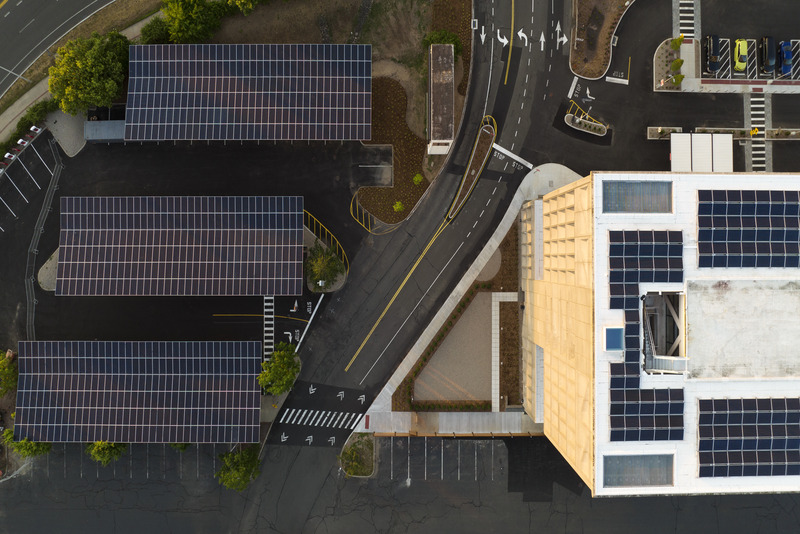
A building that once fueled the growth of the American automobile industry now operates free from fossil fuels. The historic Armstrong Rubber Company has turned into The Hotel Marcel, one of the northeast’s most sustainable hotels. This LEED-Platinum property currently operates on a mixture of city grid and solar power, with over 1,000 panels on the roof and parking canopies, and aims to be America’s first Net Zero hotel by the end of next year. An innovative low-voltage power system controls window shades, cutting power use by 30%, and electric vehicle drivers won’t have to fight for charging spaces with 12 universal charging stations and another 12 for Teslas. You’ll also find no single-use plastics on site, and the restaurant and bar compost all their waste.
Hyatt at Olive 8 – Seattle, Wash.
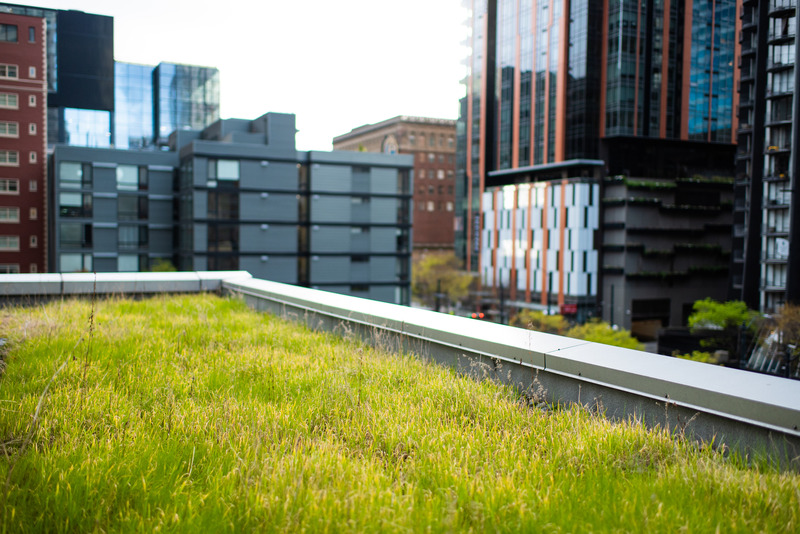
It’s one thing for a hotel to act sustainably on its own property. It’s quite another to use its development to preserve forests outside the city. That’s the aim of the King County Transfer of Developmental Rights program, and this Hyatt is Seattle’s first hotel to leverage the program, utilizing it to preserve 284 acres near Sugarloaf Mountain. Its onsite green initiatives include a rooftop that gathers Seattle’s abundant rainwater to help insulate meeting spaces, as well as dual-flush toilets and low-flow plumbing that save 2.4 million gallons of water a year. Energy consumption is mitigated through rooftop wind turbines and LED and fluorescent lighting. And in addition to composting food waste, the hotel also donates untouched food to local food scarcity organizations.
Hotel Terra, – Jackson Hole, Wyo.
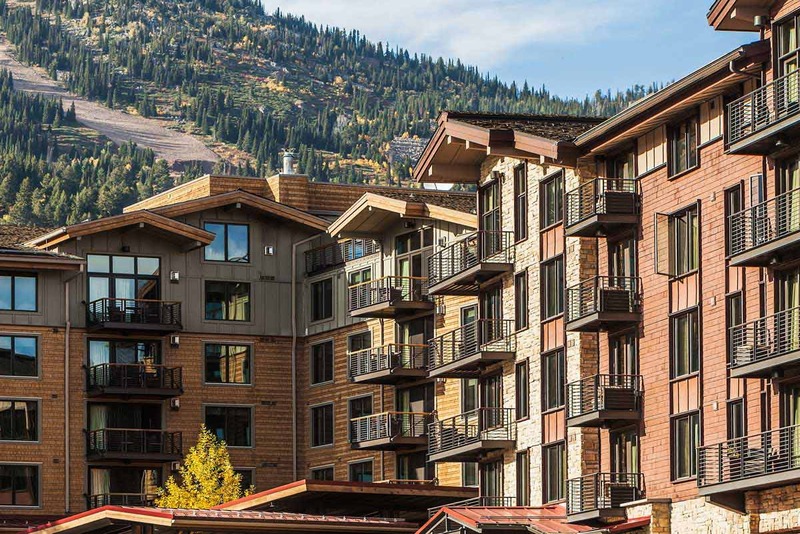
Up in the Grand Tetons, keeping people warm is essential no matter the energy cost. But rather than burning fossil fuels and fires, the Hotel Terra instead uses a special radiant heating system in the floors and garage to minimize heat loss, and adaptive technology that turns heat down when guests aren’t around. Its giant, bright windows use natural light to illuminate most public areas, simultaneously reducing light pollution near the national parks and the hotel’s electricity usage. The roof shingles are made from recycled tires, and 80% of the steel used in construction was recycled, too.
The Lodge at Bodega Bay – Bodega Bay, Calif.
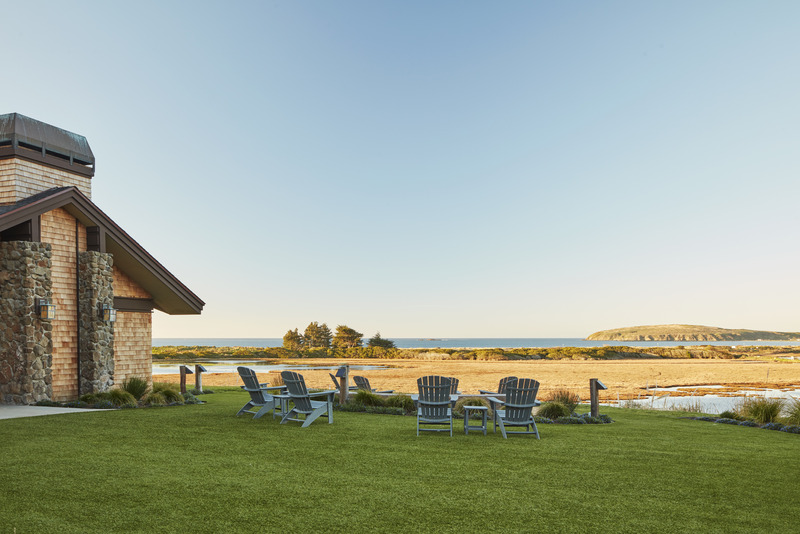
Alfred Hitchcock showed us all what happens when we piss off the natural inhabitants of California’s Bodega Bay. So rather than provoke another “The Birds” situation, the Lodge has set up bee hives and owl houses to welcome the town’s airborne inhabitants. The honey is used — along with fruits and vegetables also harvested onsite — to fill the menu at Drake’s Sonoma Coast, the lodge’s restaurant. In drought-ridden California, water conservation is the name of the game, so this hotel’s landscaping is covered in low-water plants and red fescue grass, which require less water than traditional lawns. This year will also see the completion of the Lodge’s solar panel program, cutting its energy consumption considerably.
The Palms Hotel – Miami Beach, Fla.
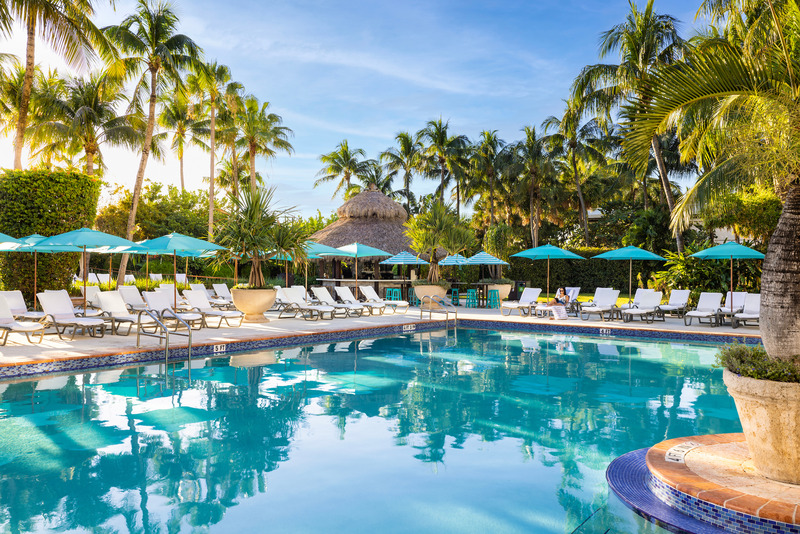
This historic Art Deco hotel along the shores of Miami Beach sets the South Florida standard for sustainability. The Green Globe-certified hotel has deployed its Sustainable by Nature program since 2010, making green practices part of its corporate policy long before it was commonplace. The hotel has no disposable plastic, opting instead for aluminum water bottles, wood and bioplastic cutlery on the beach and reusable utensils by the pool. Low flow plumbing fixtures and Mode Green light and AC systems keep water and energy consumption to a minimum. The Palms also hosts quarterly beach cleanups, and the onsite restaurant Essensia does its part by partnering with the Sustainable Supper Club for events benefitting local food organizations.
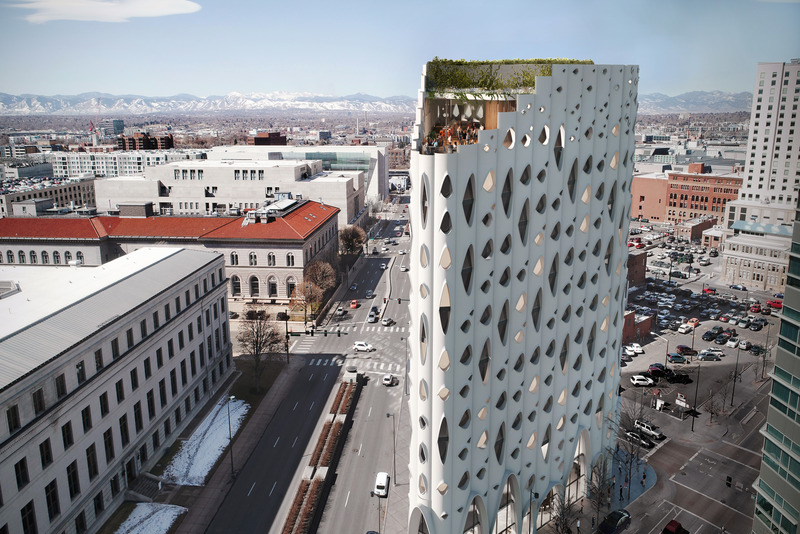
(Opening September 2024)
While you can’t exactly stay inside an Aspen tree, this forthcoming hotel in Downtown Denver curates a similarly arboreal experience, but with the edges smoothed out. The windows are shaped like Aspen eyes, letting in natural light as it shines on a clean cut interior of natural woods and bright foliage. The Populus claims to be the first “carbon-positive” hotel, already offsetting its construction emissions by planting over 70,000 trees in Colorado’s Gunnison County. Many of these trees are Engelmann Spruce, whose population has waned in recent years due to beetle kill. (The efficacy of offsetting emissions by planting trees is still debated among climate experts.) The rooftop will have a public garden and restaurant, as well as a view over Civic Center Park. Many rooms also come equipped with window hammocks — small couches built into the curved windows where you can bask in the sunshine regardless of the weather.
Rosewood Miramar Beach – Montecito, Calif.
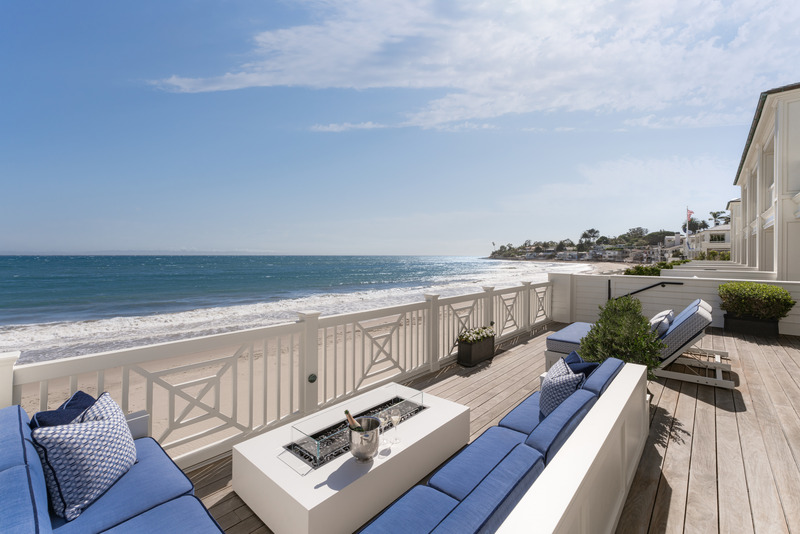
In picture-perfect Montecito, preserving the natural environment isn’t just good stewardship, it’s essential to keep tourists coming back. Caruso’s, Rosewood’s restaurant, received a Michelin Green Star this year to go with its traditional star, a result of its work with local fishermen and farmers to source local ingredients. You’ll find multiple fish from nearby Channel Island and Santa Barbara on their menu, like the Channel Island calamari ripieni, roasted and served with muddica (breadcrumbs) and fennel vellutata. In-room amenities are all recyclable, and the hotel has revamped its laundry practices to minimize water waste.
St. Julien Hotel – Boulder, Colo.
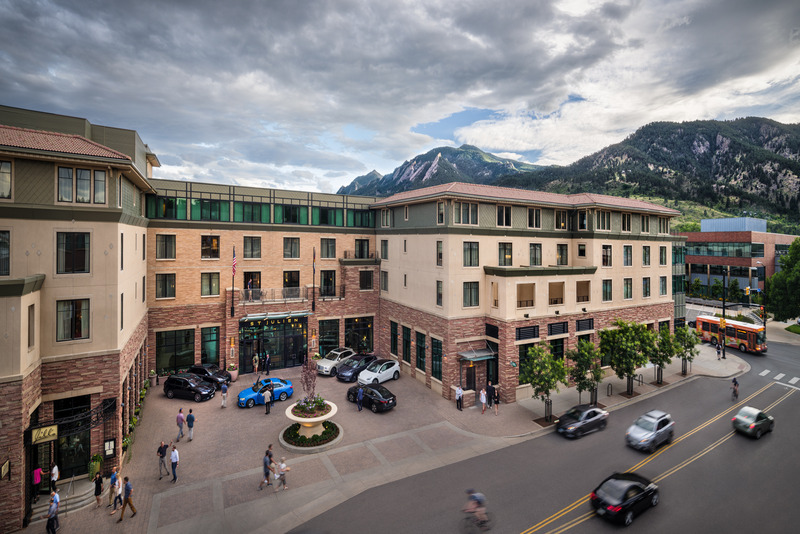
Boulder’s lone Four-Star, Four-Diamond hotel is also a leader in sustainability. The St. Julien is part of the Ecocycle Zero Waste program, and the hotel composts, recycles or donates nearly 70% of its waste. This amounts to 200 tons of composted trash and 10,000 pounds of donations to local organizations like the Boulder Shelter for Homeless and Resource Area for Teachers. The hotel also partners with Clean the World, an organization that repurposes wasted hotel soaps and shampoos in hygiene kits for those in need. Bathrooms are filled with Leaping Bunny-certified cruelty-free amenities, and all of the hotel restaurant’s containers are 100% compostable. The restaurant also grows many of its own vegetables, herbs and honey, courtesy of a rooftop aviary.




